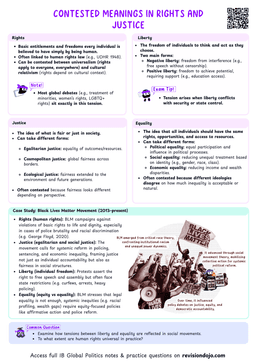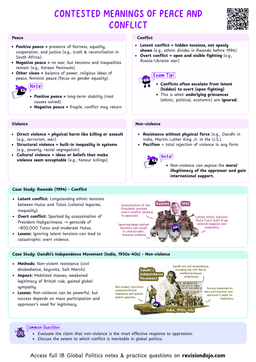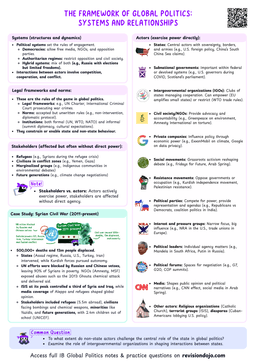Understanding Multinational and Transnational Companies
Multinational Companies
Multinational Companies (MNCs) operate in multiple countries but maintain a strong centralized headquarters in their home country.
Transnational Companies
Transnational Companies (TNCs) operate across borders with a more decentralized structure, allowing local subsidiaries to make decisions.
- MNCs often replicate their home country's business model abroad, while TNCs adapt to local markets.
The Role of MNCs and TNCs in Global Politics
- Economic Influence
- Investment and Job Creation: MNCs and TNCs invest in infrastructure, create jobs, and stimulate economic growth in host countries.
- Global Supply Chains: They manage complex supply chains, connecting economies and fostering interdependence.
- Political Influence
- Lobbying and Policy Shaping: These companies often lobby governments to create favorable business environments, influencing trade policies and regulations.
- Soft Power: Through branding and corporate social responsibility (CSR) initiatives, they shape public perceptions and cultural norms.
- Social and Environmental Impact
- Corporate Social Responsibility (CSR): Many MNCs and TNCs engage in CSR to address social and environmental issues, though the effectiveness and sincerity of these efforts are often debated.
- Environmental Concerns: Their operations can lead to environmental degradation, prompting calls for stricter regulations and sustainable practices.
- The 2010 Deepwater Horizon oil spill by BP highlighted the environmental risks associated with MNC operations and led to increased scrutiny of corporate practices.
Apple Inc.
- Economic Impact
- Global Supply Chain: Apple's supply chain spans multiple countries, with manufacturing concentrated in China through partnerships with companies like Foxconn.
- Job Creation: While Apple creates jobs in host countries, critics argue that working conditions in factories can be poor.
- Political Influence
- Lobbying: Apple lobbies for favorable trade policies and tax regulations in the United States and abroad.
- Data Privacy: The company's stance on data privacy has sparked debates with governments over encryption and user security.
- Social and Environmental Responsibility
- CSR Initiatives: Apple invests in renewable energy and sustainable materials, aiming to reduce its carbon footprint.
- Criticism: Despite these efforts, the company faces criticism for e-waste and labor practices in its supply chain.
- When analyzing MNCs and TNCs, consider their impact on multiple levels: economic, political, social, and environmental.
Theoretical Perspectives on MNCs and TNCs
- Realism
- State-Centric View: Realists argue that MNCs and TNCs operate within the framework of state interests, with governments using them to enhance national power.
- Liberalism
- Interdependence and Cooperation: Liberals view MNCs and TNCs as agents of globalization, promoting economic interdependence and cooperation between states.
- Marxism
- Exploitation and Inequality: Marxists criticize MNCs and TNCs for perpetuating global inequality and exploiting labor in developing countries.
- Don't assume all MNCs and TNCs operate the same way. Their strategies and impacts can vary significantly based on their industry, size, and home country.
Challenges and Criticisms
- Tax Avoidance
- MNCs and TNCs often use complex legal structures to minimize tax liabilities, leading to debates over fair taxation.
- Labor Exploitation
- Critics argue that these companies exploit cheap labor in developing countries, prioritizing profits over workers' rights.
- Environmental Degradation
- Their operations can cause significant environmental harm, prompting calls for stricter regulations and sustainable practices.
- The Rana Plaza factory collapse in Bangladesh in 2013 exposed the poor working conditions in the supply chains of major clothing brands, leading to increased scrutiny and demands for reform.
The Future of MNCs and TNCs
- Digital Transformation
- Advances in technology are reshaping how MNCs and TNCs operate, with increased focus on e-commerce and digital services.
- Sustainability and Ethics
- There is growing pressure on these companies to adopt sustainable practices and prioritize ethical governance.
- Geopolitical Tensions
- Trade wars and geopolitical conflicts can disrupt global supply chains, forcing MNCs and TNCs to adapt their strategies.
- Identify three ways in which MNCs and TNCs influence global politics.
- How do these companies balance economic interests with social and environmental responsibilities?


